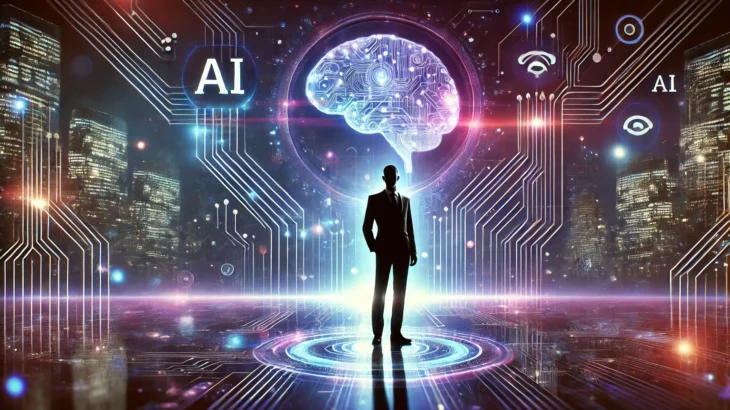The Intersection of AI and Personal Branding: A New Frontier for Professionals
Personal branding has never been more critical in an age where a strong digital presence has become a key differentiator. Professionals and creators realize that their unique value proposition—personal brand—often sets them apart in competitive markets. At the same time, artificial intelligence (AI) has been advancing rapidly, offering capabilities that can profoundly enhance, refine, and reimagine the personal branding process. This empowerment allows individuals to build, maintain, and share their brands with confidence and control as AI transforms how they operate digitally.
- Defining Personal Branding in the AI Era
Personal branding refers to the process by which a professional or creator markets themselves—their expertise, personality, skills, and values—to an audience. It’s about forging an emotional connection with others and demonstrating what you stand for.
Conversely, AI is a broad term for simulating human intelligence in machines. These machines perform tasks that involve problem-solving, learning, decision-making, and understanding language. While large enterprises have traditionally dominated the AI field, today, individual professionals and small businesses can access affordable and user-friendly AI tools. This increased accessibility is rapidly redefining how people build their personal brands.
- AI-Enhanced Content Creation
- Automated Copywriting and Design
Modern AI tools can generate written content—blog articles, social media posts, or video scripts—enhancing or even automating parts of the content creation process. For those building a personal brand, these tools can:
- Brainstorm topic ideas aligned with a brand’s niche or industry.
- Optimize headlines and taglines for maximum visibility on social platforms.
- Generate graphics and designs using AI-powered image-generation tools.
These modern AI tools don’t replace the human element—personal insights, creativity, and authenticity remain essential. Instead, AI amplifies repetitive tasks and allows brand-builders to focus on higher-level strategy and personal touches, making them feel valued and integral to the process.
- Consistency and Efficiency
In personal branding, consistency across platforms is crucial. AI can help ensure that your tone, messaging, and visual identity remain cohesive:
- Style transfer algorithms enable you to replicate a consistent visual style for images or videos.
- Language models can be trained on your existing work to maintain a specific voice and language pattern in any new content generated.
By leveraging these tools, individuals can maintain their unique brand identity while producing content more efficiently.
- Personalized Audience Insights and Analytics
- Data-Driven Persona Development
Successful personal branding involves a deep understanding of one’s target audience. AI-driven analytics can examine data from social media platforms, websites, and email newsletters to distill critical insights:
- Demographic and psychographic profiling: Which topics resonate most? What style of communication do they prefer?
- Real-time feedback loop: AI can track likes, shares, comments, and conversions, helping you adjust your content strategy quickly.
These insights allow professionals to tailor their messaging and content to the preferences of their most engaged followers, strengthening audience loyalty.
- Predictive Engagement
Modern AI systems can predict which pieces of content are likely to perform best. By analyzing historical engagement data, AI can suggest the optimal time to post, the right platform, and even the best content format (video, blog, infographic). This prediction enables you to maximize reach and engagement, helping your brand gain momentum.
- The Rise of Virtual Influencers and Avatars
Though it may sound futuristic, virtual influencers—digital personas powered by AI—are becoming recognized in social media and marketing. While most personal brands revolve around a real human face, some professionals experiment with the following:
- AI-created avatars that can be used in videos, live streams, and interactive online experiences, delivering pre-scripted or real-time AI-generated responses.
- Branded chatbots that speak with the brand’s “voice,” handling FAQs or routine interactions on websites and social media.
These technologies can free up time for high-value tasks and create a unique brand persona. However, striking the right balance between automation and genuine human connection is crucial to retaining authenticity.
- Authenticity in the Age of Automation
Maintaining authenticity is one of the biggest challenges in AI and personal branding. Personal branding hinges on trust, emotional connection, and unique perspectives. AI-generated content, though efficient, can risk sounding generic or impersonal if it’s not managed carefully. Professionals should consider the following:
- Human oversight: Always review AI-generated content to ensure it aligns with brand values, language style, and emotional tone.
- Transparency: Consider disclosing the use of AI in content creation, particularly for audiences who value honesty in brand communication.
- Signature style: Infuse personal stories, anecdotes, and opinions only humans can provide. AI can assist, but you should own the final narrative.
- Ethical and Privacy Considerations
AI’s data-driven nature means it often relies on personal and audience data. As you use AI to refine your brand, it’s essential to address issues of data privacy and ethical practices:
- Consent and compliance: To gather audience data, comply with relevant data protection laws (e.g., GDPR for European audiences).
- Bias and representation: AI systems can unintentionally replicate biases found in training data. Regularly audit the outputs of AI-driven tools to ensure they represent diverse and inclusive viewpoints.
- Deepfakes and authenticity risks: As AI-generated content becomes more advanced, the potential for misuse (e.g., creating deepfake videos or audio) grows. Proactively protect your brand by marking official content and clarifying any AI-driven augmentations. It’s essential to be aware of these risks and take steps to mitigate them.
- Best Practices for Building Your AI-Enhanced Personal Brand
- Start with Strategy
Define your personal brand mission, core values, and audience profile. AI will only be effective if you have a clear direction for your brand. - Curate Your Toolset
Explore and test different AI platforms and tools—content generation tools like OpenAI’s GPT -3, analytics tools like Google Analytics, design tools like Canva, and scheduling tools like Hootsuite—to find the ones that best suit your brand’s needs and budget. - Maintain Creative Control
Use AI as a co-creator rather than a substitute. AI can speed up repetitive tasks and provide fresh ideas, but your final voice should remain distinctly human. This emphasis on maintaining creative control reassures you that your personal brand remains in your hands, and AI is simply a tool to enhance your vision, making them feel reassured and in charge of their personal brand. - Focus on Human Connection
Combine AI-driven efficiency with genuine interactions—respond to comments, share personal experiences, and engage with your audience directly. - Monitor, Evaluate, Adapt
Leverage AI’s data analysis capabilities to continuously optimize your strategy. Monitor what works best, pivot when needed, and let the data guide your content calendar. - Stay Updated
AI is evolving rapidly. Regularly update your knowledge on new platforms, features, or algorithms that may give your brand a competitive edge.
- Conclusion
The integration of AI with personal branding holds vast potential. By automating mundane tasks, offering data-driven insights, and allowing the creation of innovative content, AI empowers individuals to build impactful personal brands more effectively than ever before. Yet, it’s essential to remember that authenticity, trust, and authentic human connection remain at the heart of personal branding. When combined with a strategic mindset and ethical considerations, AI is not just a tool—it can become a powerful partner in crafting a compelling, resonant personal brand that stands out in the digital age.
In essence, personal branding in the AI era is about leveraging machine intelligence to highlight and amplify what makes us uniquely human. By thoughtfully embracing AI tools, professionals can sharpen their messaging, expand their reach, and ultimately build stronger, more genuine connections with their audiences.






